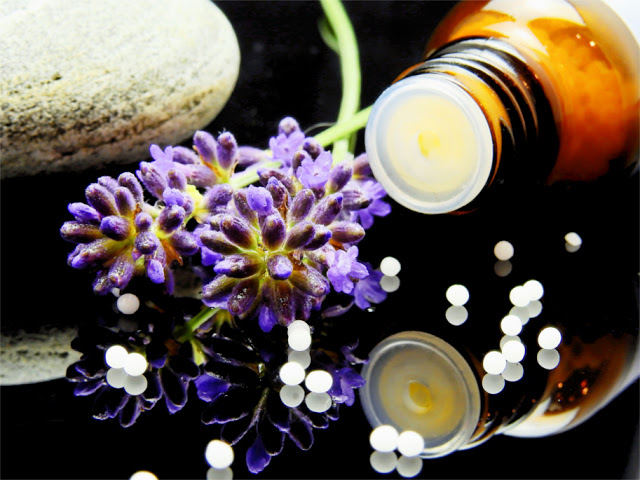Stress is something most of us deal with to some degree in our everyday lives; whether it’s a result of pressure at work or problems at home. This can have serious negative effects on our overall physical and mental health, and it shouldn’t be just ‘one of those things’ you have to put up with.
We have looked into a few different therapies which can aid relaxation and in doing so improve your overall wellbeing, and below you can find our thoughts on each.
Aromatherapy
 |
| Image Source: pexels.com |
Aromatherapy isn’t exactly new, but it is definitely growing in popularity as people lean towards more holistic therapies to deal with stress. Aromatherapy involves the use of essential oils (which are extracted from specific plants and flowers with particular properties) in a controlled way to promote relaxation of the mind and body and improve overall wellbeing. These oils can be used in different ways, whether it’s through inhalation in the form of diffusers or other scent releasing products, or through absorption into the skin, often during a massage. Aromatherapy is used for a variety of purposes in addition to relaxation, including pain relief and increased brain function.
This is a great option for anyone who enjoys using candles to wind down in the evening, as that would suggest that calming scents work for them. The massage option, however, is particularly effective due to the combination of physical therapy and the inhalation of naturally healing oils.
Infrared Saunas
This is a treatment which many people aren’t aware of yet, but is fast becoming a huge trend. This is especially true amongst celebrities like Gwyneth Paltrow, who recently advocated the saunas positive impact on her metabolism and mental wellbeing in comparison to more traditional saunas.
These infrared saunas differ from how traditional steam and coal saunas work, as they emit infrared light which is absorbed directly as heat by our skin. This makes it more effective than other saunas, in terms of time (infrared heats you up much faster than traditional saunas) and enjoyment (the sauna feels less humid and uncomfortable because of the infrared). Similar to regular saunas, however, is the extensive list of benefits they provide; improved circulation, lower blood pressure, healthier skin, improved weight loss and mental well being, and they can even help fight cancer.
The science behind infrared treatment is supported, and as far as relaxation goes, they certainly sound like they would do the trick.
Sound Therapy
 |
| Image Source: pexels.com |
Most of us have a specific song or album that we listen to which helps us relax, but sound therapy takes this to the next level. Sound therapists believe we are all made up of different energy frequencies, and they use particular sound frequencies to interact with these to rebalance the body’s energy. These sounds can be made up of a combination of bells, singing bowls, drums and even the human voice – whatever sounds the therapist feels will benefit the client and help reduce their stress levels.
They suggest that this works because sounds tap into our emotional beings as well as our physical beings, so the use of audio helps to balance us emotionally and make us feel more relaxed. The therapy is always administered with a qualified sound therapist present, and if you already have that one song in mind that you know helps you relax, then on a small scale you have a grasp of sound therapy.
Reflexology
Reflexology is an alternative medicine which involves specific application of pressure to your hands and feet using thumb and finger techniques, without using any massage oil or lotion. This is a more technical form of physical therapy in comparison to general body massages, as it is based on a specific system of zones and reflex areas on the hands and feet being interconnected. The stimulation of these zones is intended to relieve tension in other parts of the body.
There are some who are sceptical about these methods though, who suggest that there is no scientific proof that these zones actually exist. However, people do strongly advocate for them regardless, and even if there isn’t scientific evidence to support it, the placebo effect and just the act of lying down can sometimes be all people need to de-stress.
This method might be more suited to people less comfortable with a full body massage, as it is more specific and involves pressure on only the hands and feet.
Halotherapy
This is the technical name for Salt Therapy, which is rather new in therapy circles. It is predominately focused on healing respiratory problems, but it is also believed to cleanse your body and improve overall wellbeing. The origins of halotherapy can be traced all the way back to Ancient Greece, with doctors as far back as then and as recent as now championing its health benefits. The process essentially involves sitting in a salt room, or ‘salt cave’ as some call them, and simply inhaling the dry, salt-enriched air which then naturally does its work.
One problem people face when taking this up as a regular treatment is that it’s not that widely accessible at the moment; which is a shame as it is particularly effective for those that might have respiratory problems. A simple search online should tell you whether you’re lucky enough to have one of these nearby.
This post was written by the team at UK Saunas.
